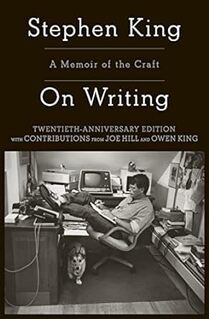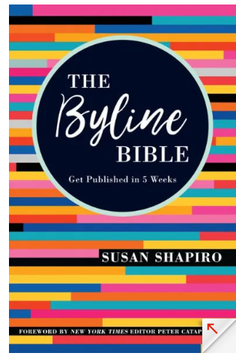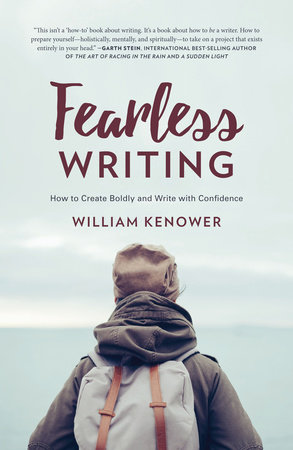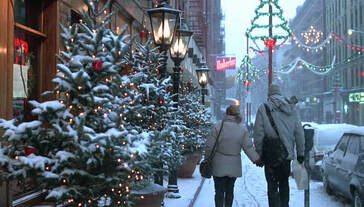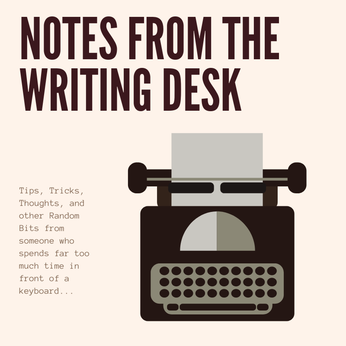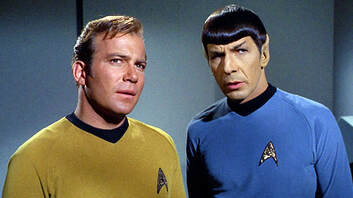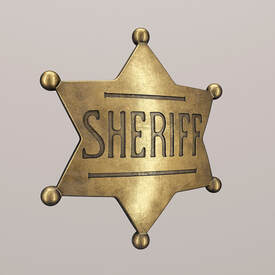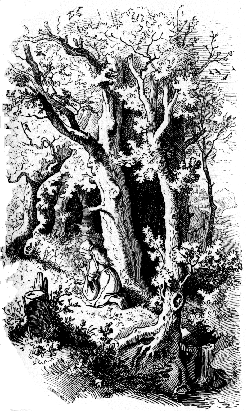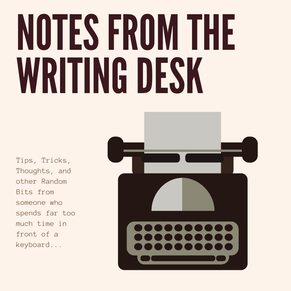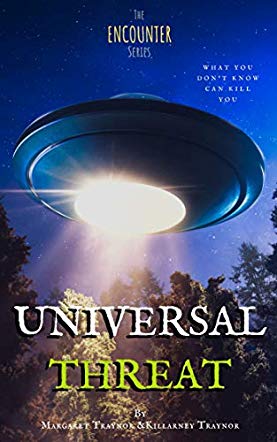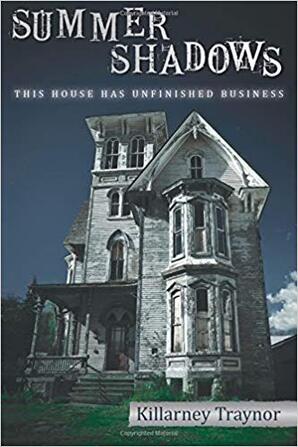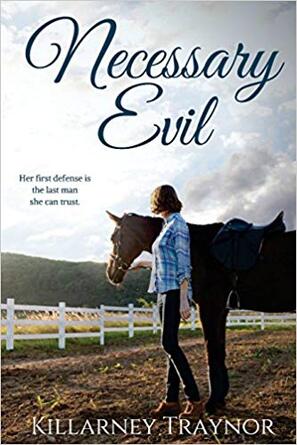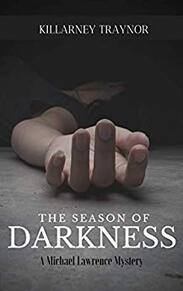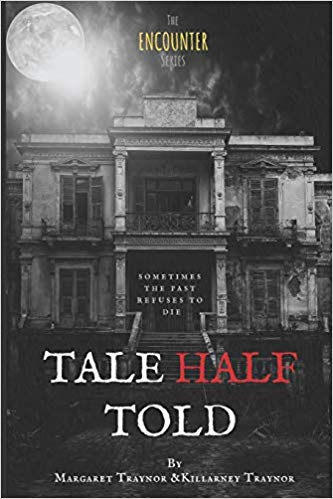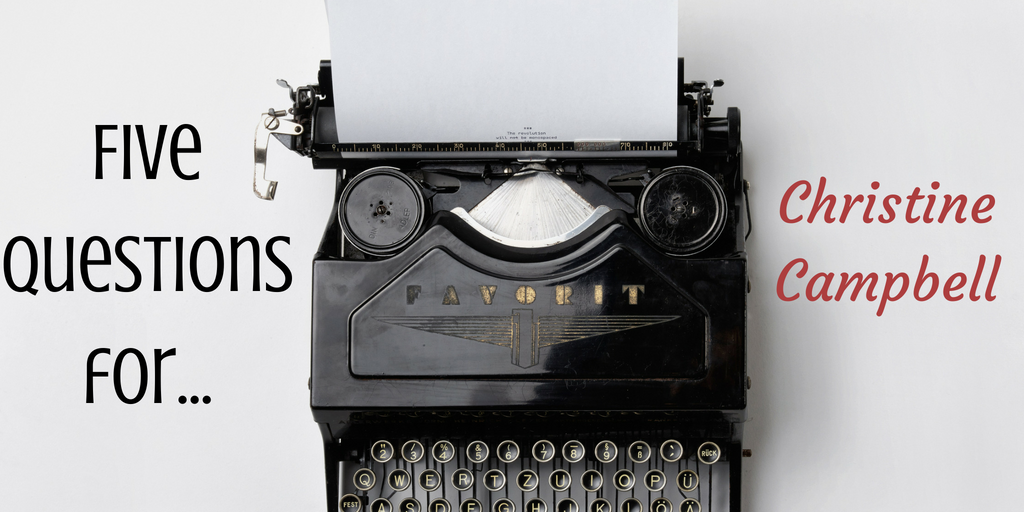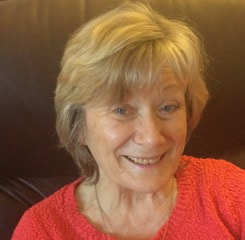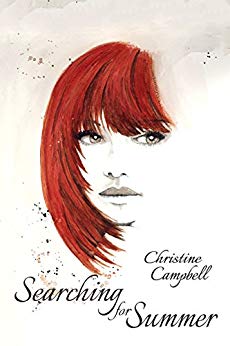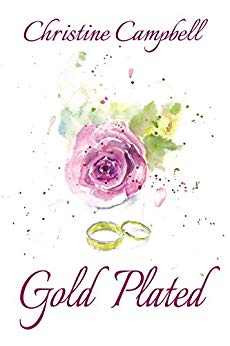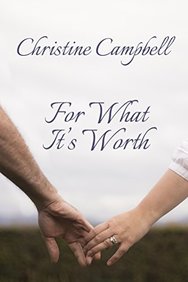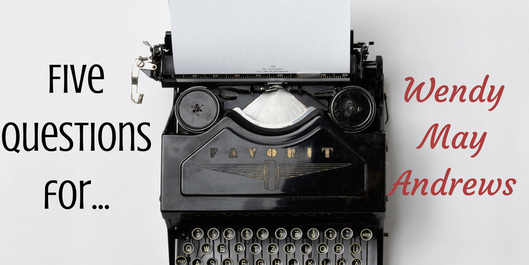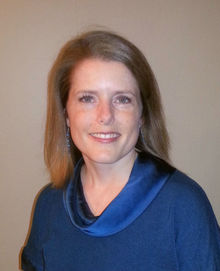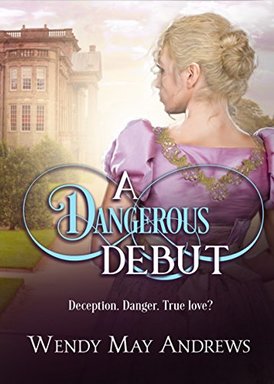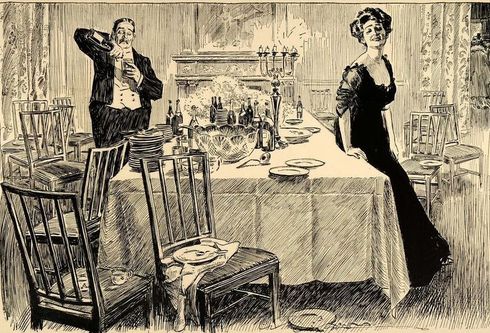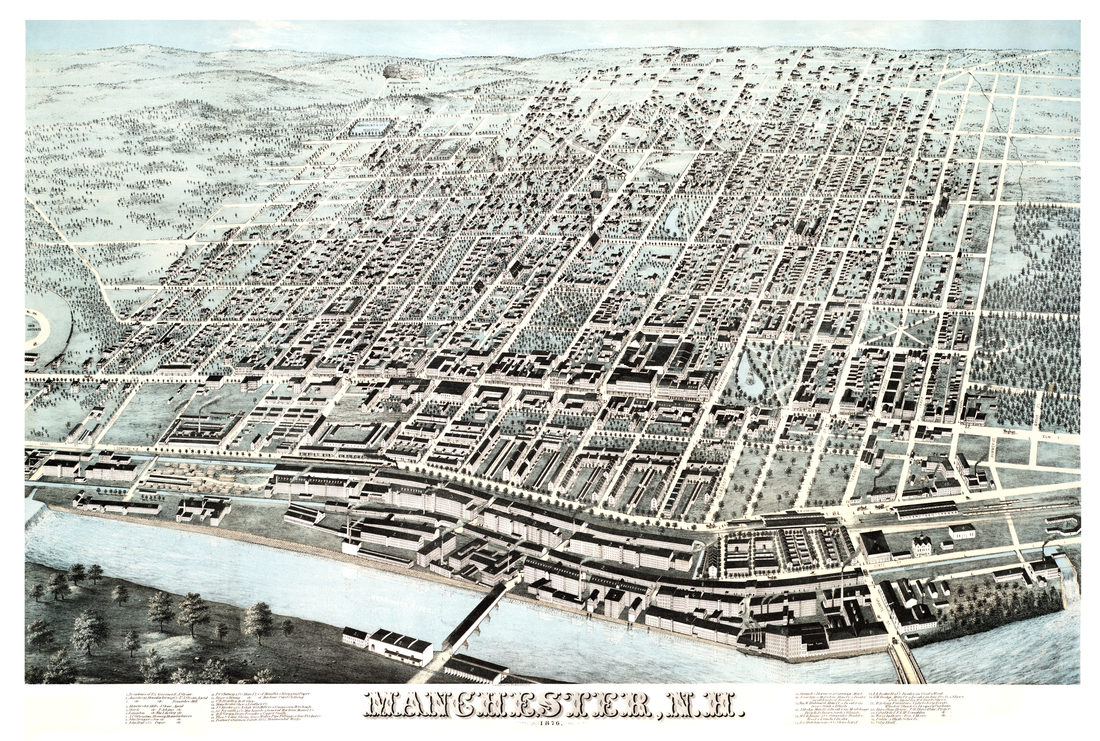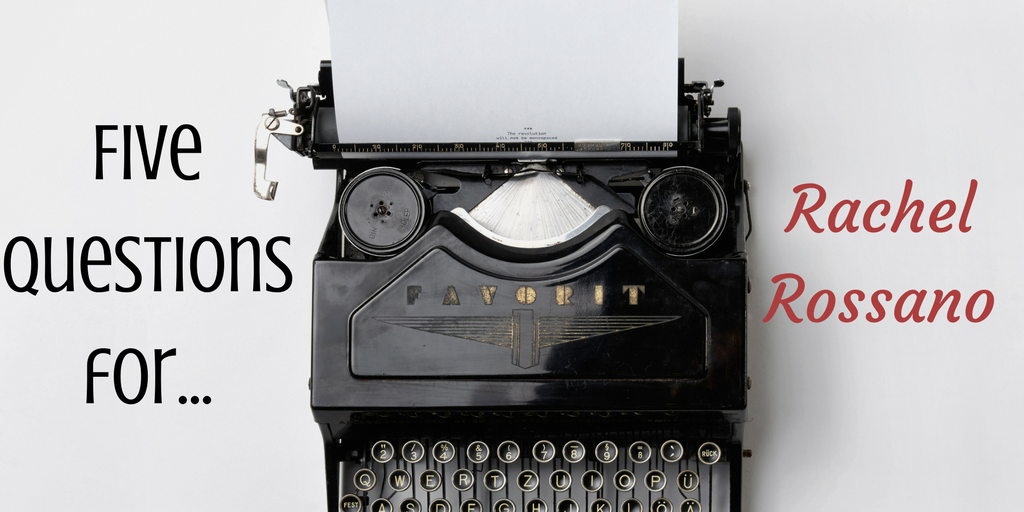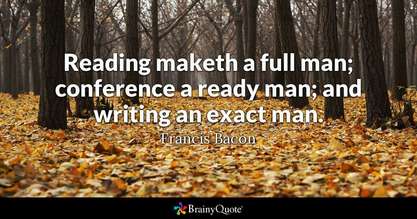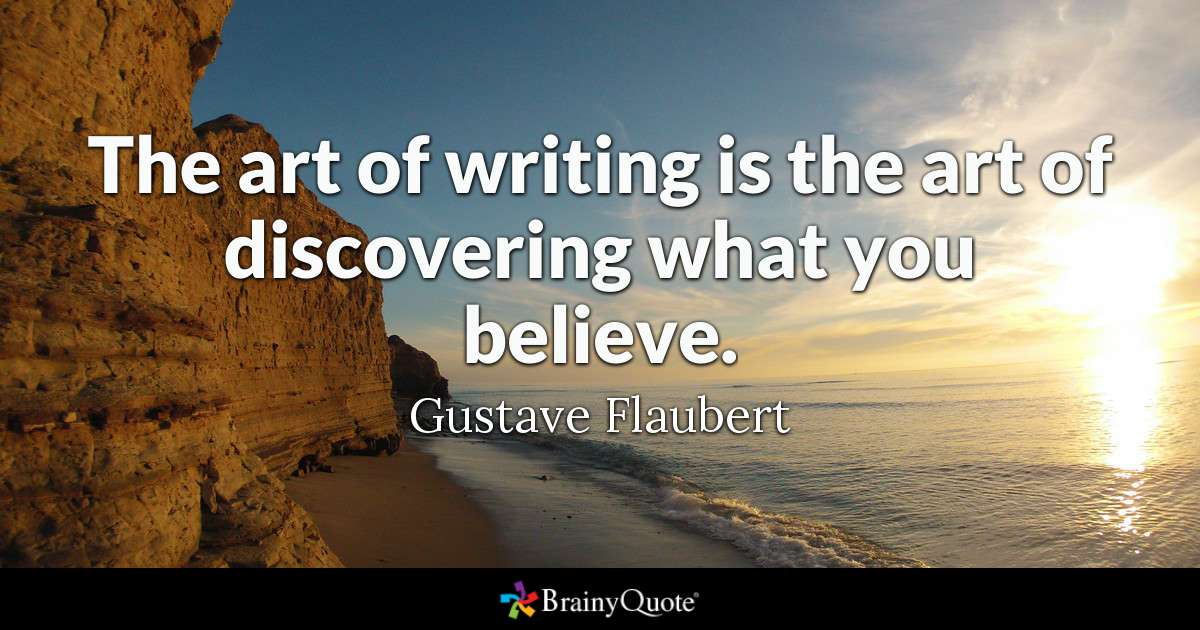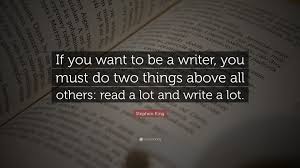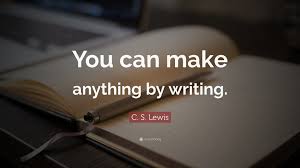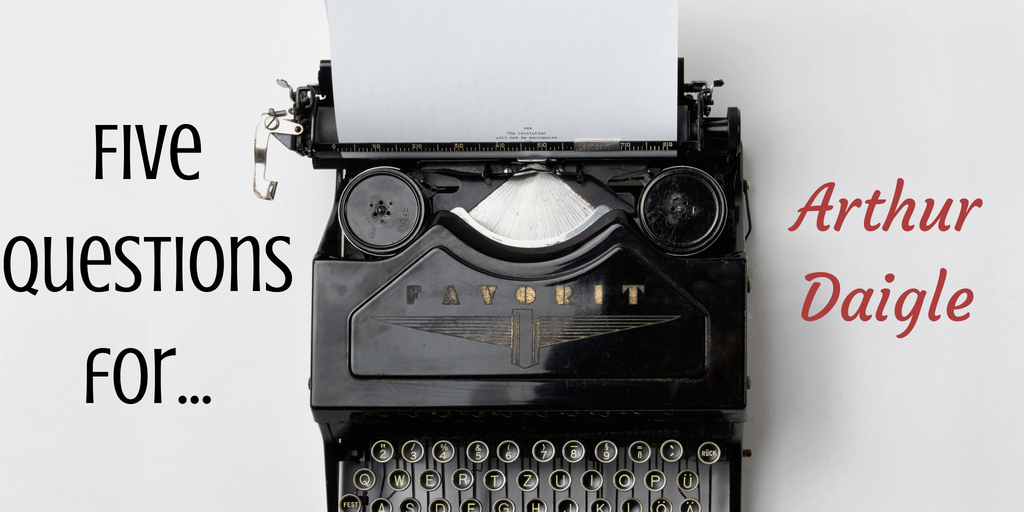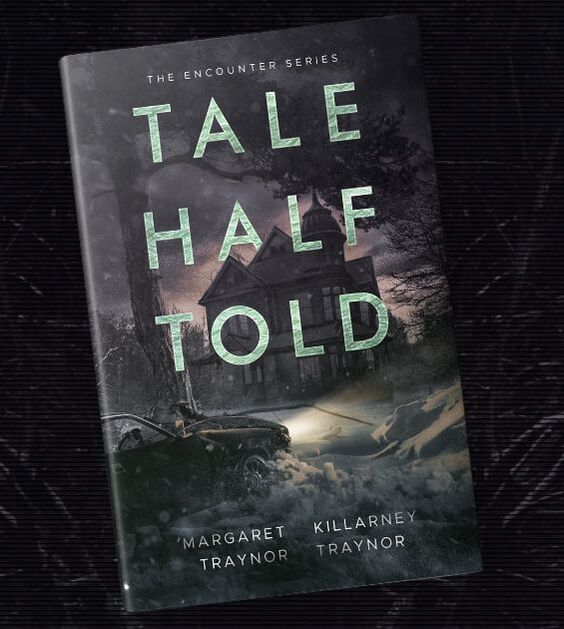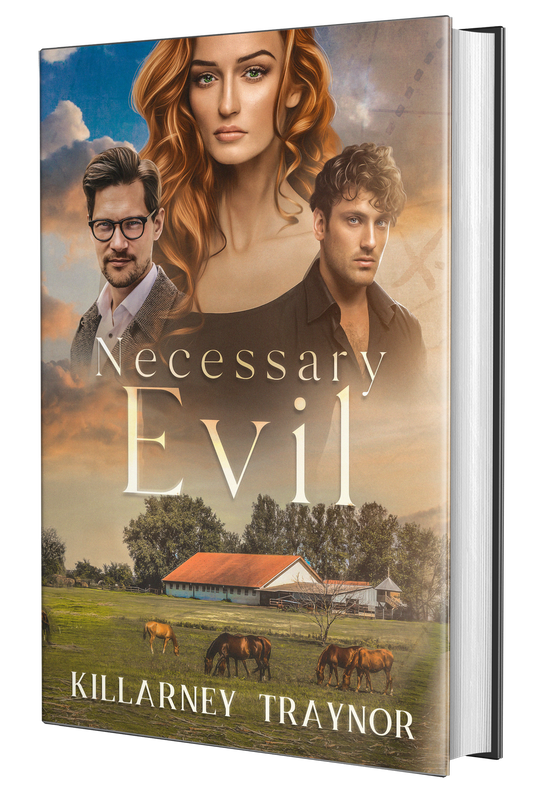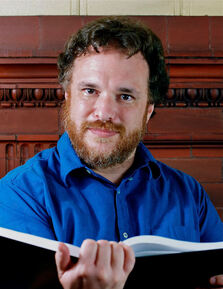 Today, I have the honor of interviewing a writer who is not only a big sci-fi, fantasy fan, but is also an adjunct professor of archeology and anthropology. Kurt D Springs writes about the world of the Dreamscape, 1000 years into our future, where a scrappy warrior named Liam discovers his nascent true abilities, his calling to save the world – and the timeless truths about the importance of honor, mercy, and family. (You can read a sneak-peek of Price of Vengeance here!) Our Five Questions focus on Kurt’s inspirations, but really, I wanted to know how this modern- day Indiana Jones became a writer! Find out below! 1. You teach anthropology and archeology, with a focus on Neolithic and Bronze Age Ireland. What drew you to this field and how does it inspire your writing?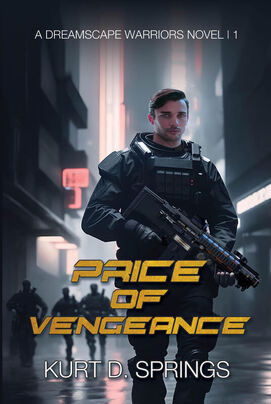 The relaunched version, produced by Black Rose Writing! The relaunched version, produced by Black Rose Writing! Ah, therein lies a story. I was between jobs when I went on an archaeological excavation in Belmont, New Hampshire. I’ve always liked mythology and folklore and had gravitated to Irish mythology. I decided to go to the Harvard Extension School and get a Master of Liberal Arts in Anthropology and Archaeology. While there I took a course in Old Irish, which was spoken in Ireland between A. D. 700 and 900. I got a chance to go on a dig in Ireland and was hooked. I decided to go to National University of Ireland in Galway. I earned a Master of Literature in Archaeology. Fun fact: I thought of the initial idea for Price of Vengeance walking back to my apartment toward the end of my stay. I didn’t know whether it should be science fiction or fantasy at the time. I decided to get my PhD. at the State University of New York at Buffalo. The summer before I started, I began the process of outlining Price of Vengeance. Once I started, I had little time for fiction writing. After I graduated in 2010, I found few opportunities for work. I picked up the outline and started to flesh it out. Over time, I slowly built up a career as an adjunct. My archaeology is just under the surface of my writing. Underlying my world building are ancient civilizations that disappeared before the current spacefaring species arose, including humanity. 2. Your Dreamscape world is extraordinarily detailed – what inspired you to create it?My two major inspirations were the late Andre Norton’s Forerunner series and the Halo video games. Andre Norton’s science fiction often featured ESP powers. Halo inspired the military end of things. I also took inspiration from the first F.E.A.R. video game. The protagonist had an ability similar to stepping out of time. People have compared the Dreamscape Warriors series to Star Wars. If it did provide inspiration, then it was subconscious. 3. Family – both blood and found families – form the foundation for a lot of what you’ve written here. How does your family inspire and/or support your work?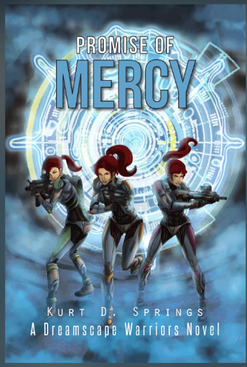 The second book in the series. This is the original cover (the reissue is coming soon!) and is still available in limited quantities. The second book in the series. This is the original cover (the reissue is coming soon!) and is still available in limited quantities. Family is important to me. My parents have always supported me. Mom helped with a great deal of editing. My brother and sister-in-law did some beta reading. Even my younger niece caught a mistake or two. In one book, my father, a military historian, also provided some advice. My father died August 17, 2021, after battling age related illnesses. Mother and I had to take care of him for nine months as his mobility deteriorated. Age has caught up to Mother as well. I live at home so I can take care of her. My brother spots me if I have to teach on a really bad day. 4. There are so many characters in your books, from a wide variety of walks of life. Which is your favorite and why?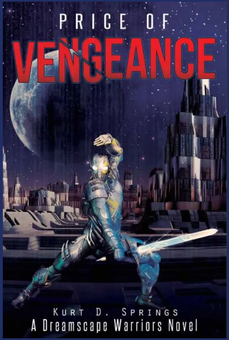 The original cover - limited copies are still available! The original cover - limited copies are still available! That’s a hard one. There is a bit of myself in each character, which is true for any author. If I may be indulged in being allowed two, it would be Liam and Kergan. This protagonist/antagonist pairing is interesting because they’ve both been shaped by similar events. Liam lost his birth parents and foster parents, ultimately on a traitor’s orders. Kergan lost his parents, siblings, and friends when alliance warships launched an incendiary bombardment on his home planet. He watched friends and family burn to death. They are both men with wounded souls. Liam quickly turned from the path of vengeance. For Kergan, the pain of loss inspires him to allow vengeance to drive him. 5. You’re working on re-releasing your first two books, Price of Vengeance and Promise of Mercy now. What’s next for you? Do you have a new book in the pipeline?I’m also releasing Legacy of Valor this year as well. After reading Price of Vengeance and Promise of Mercy. Mom said, “Kurt, there is a story in between these two.” Legacy of Valor has become the second book in the series. Liam is forced into the role of division commander when the higher ranks are taken out be a hidden explosive. He’s lost his orbital support, and Kergan’s forces out number his six-to-one. The next two books are Gift of Peace (that title may change) and Mark of Integrity. The first has Liam’s son Aidan trying to get information Kergan’s after to Finnian Military Intelligence. The second is a prequel, taking place 600 years before the events of Price of Vengeance. Bonus: Okay, now the big question: Star Trek or Star Wars?Another complicated one. If you are talking about Star Trek before the J. J. Abrams film and Star Wars before Disney, it’s a hard choice. I liked both equally. I grew up on the Original Series. The Next Generation and DS 9 were intriguing. I never really got invested in Voyager and Enterprise. Star Wars Legends continuity, as it is now called, was always intriguing, especially the expanded universe. I used to play Jedi Academy all the time. When both “updated” they lost the magic of both. I did draw technical inspiration from Star Trek. Star Wars lightsaber combat inspired me to research actually fencing moves for plasma blade combat. EVENT!
Check out Kurt's website here and
|
FIND Wendy ON AMAZON.COM, |
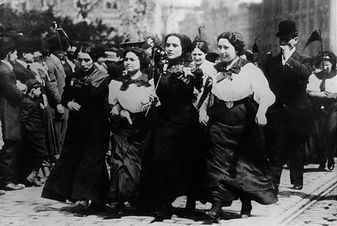 New York Mill Workers, circa 1910
New York Mill Workers, circa 1910 You'll never know what you don't know about a period until you're writing a book or making a movie about that era.
Seriously. It's odd what you find yourself typing into the Google search bar. For instance, when I was writing Necessary Evil, I needed to know everything worth knowing about engagement rings during the Civil War. Were engagement rings used? If they were, did they have stones? Were they gold? Could we tell what they were just by looking at them?
Seriously. It's odd what you find yourself typing into the Google search bar. For instance, when I was writing Necessary Evil, I needed to know everything worth knowing about engagement rings during the Civil War. Were engagement rings used? If they were, did they have stones? Were they gold? Could we tell what they were just by looking at them?
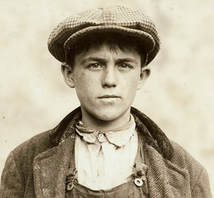 A potato eater
A potato eater Similarly, with The Dinner Party, I've found myself researching things that I never would have dreamed of looking into. Here are a few instances:
- If you were a jerk, would you call an Irishman a 'potato-eater' (Answer: yes.)
- Do the Felsons own a mill or a factory? (Answer: both. It is a factory, but its powered by water, which means it would have commonly been referred to as a mill)
- Would a husband lead a wife into the dining room for an elegant dinner party? (Answer: no, indeed! The very gauche idea!)
- How close would an owner's/overseer's house be to the mill/factory he ran? (Answer: it varied, probably dictated by wealth, wife, and how smelly the factory/mill was.)
- What would young radicals be ranting to their elders about? (Answer: pretty much the same thing they are ranting about now, only with fewer selfies.)
- If you were a jerk, would you call an Irishman a 'potato-eater' (Answer: yes.)
- Do the Felsons own a mill or a factory? (Answer: both. It is a factory, but its powered by water, which means it would have commonly been referred to as a mill)
- Would a husband lead a wife into the dining room for an elegant dinner party? (Answer: no, indeed! The very gauche idea!)
- How close would an owner's/overseer's house be to the mill/factory he ran? (Answer: it varied, probably dictated by wealth, wife, and how smelly the factory/mill was.)
- What would young radicals be ranting to their elders about? (Answer: pretty much the same thing they are ranting about now, only with fewer selfies.)
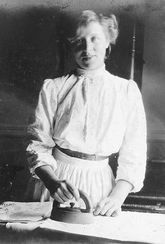 A career girl, circa 1906
A career girl, circa 1906 Fortunately, I really love this kind of thing. Research like this makes the past come alive in ways a text-book can't quite touch. Movie-making, too, allows us to remember that our ancestors were, at the end of the day, people just like you and me, trying to make a go of things and learning, working, laughing, fighting, and loving along the way.
Now, if you'll excuse me, I have to find out whether lemons would have been available in New Hampshire in May of 1906...
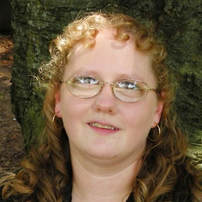 Homeschooling mother of three and author Rachel Rossano
Homeschooling mother of three and author Rachel Rossano 1. Hi and welcome to Wanderings! Our audience is dying to get to know you, so tell us a little bit about yourself!
Thank you for having me. I am a happily married homeschooling mother of three kids. Writing is my passion and cover design my hobby. I love a good story. If I can’t find one, I endeavor to write one.
2.What inspires your writing?
Life inspires me. I love people: how they make decisions, relate to those they love and hate, and what they pursue. Situations can spark ideas. Conversations, visual impressions, and people’s body language all have provoked me to mull over new ideas.
Thank you for having me. I am a happily married homeschooling mother of three kids. Writing is my passion and cover design my hobby. I love a good story. If I can’t find one, I endeavor to write one.
2.What inspires your writing?
Life inspires me. I love people: how they make decisions, relate to those they love and hate, and what they pursue. Situations can spark ideas. Conversations, visual impressions, and people’s body language all have provoked me to mull over new ideas.
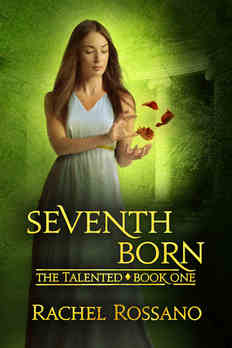
3. What inspired you to write this book?
Seventh Born, and the whole Talented Trilogy, started with an idea over a decade ago now. My husband I were having difficulty having children and I was faced with the very real possibility that we would remain childless. As I realized that dream might be slipping away, I prayed a lot, trying to find a new long term dream or goal, a purpose. The answer was publishing. With that in mind, I struggled with the fact that all of the publishers I looked into were not looking for what I wrote: non-magical historical-like medieval-like romance with adventure. So, I decided to try to write straight fantasy. What if one of my main characters were a public official in a country that officially followed a different religion, sort of like the prophets of the Bible? What if I used the seventh son concept that I kept encountering in my reading at the time? What if I threw in some special abilities that could be possibly genetically engineered? But I didn’t want to do science fiction so I set it in a regressed society inspired by some Roman cultural aspects (in their dress, architecture, and vocabulary), but not in everything, which gave me room to world build in new directions.
4. Romance is the best! Which classic couple is your favorite: Elizabeth and Darcy? Jane Eyre and Mr. Rochester? Romeo and Juliet? Or do you have another favorite and if so, what makes them the best?
One of my long-time favorite books is Jane Eyre. However, Elizabeth and Darcy hold a close second. Darcy, especially, has inspired a character in some of my books. Lord Dentin of Honor and the Novels of Rhynan series is almost a medieval version of Darcy. However, all that said, I tend to be drawn to romantic couples and their relationships. Realistic romance tends to crop up in all of my books.
5. So, you’ve just written a book: what’s next?
More writing and publishing is on the agenda. I currently have five novels (the next two in The Talented series, the first installment in a science fiction series, a contemporary inspirational romance, and then third novel in the Novels of Rhynan series) are in the pre-publishing process. I am currently writing the first draft of a novel in a new series, with at least five more installments planned. I still even more ideas simmering on the back-burner for more novels. I can’t wait to write them all!
Seventh Born, and the whole Talented Trilogy, started with an idea over a decade ago now. My husband I were having difficulty having children and I was faced with the very real possibility that we would remain childless. As I realized that dream might be slipping away, I prayed a lot, trying to find a new long term dream or goal, a purpose. The answer was publishing. With that in mind, I struggled with the fact that all of the publishers I looked into were not looking for what I wrote: non-magical historical-like medieval-like romance with adventure. So, I decided to try to write straight fantasy. What if one of my main characters were a public official in a country that officially followed a different religion, sort of like the prophets of the Bible? What if I used the seventh son concept that I kept encountering in my reading at the time? What if I threw in some special abilities that could be possibly genetically engineered? But I didn’t want to do science fiction so I set it in a regressed society inspired by some Roman cultural aspects (in their dress, architecture, and vocabulary), but not in everything, which gave me room to world build in new directions.
4. Romance is the best! Which classic couple is your favorite: Elizabeth and Darcy? Jane Eyre and Mr. Rochester? Romeo and Juliet? Or do you have another favorite and if so, what makes them the best?
One of my long-time favorite books is Jane Eyre. However, Elizabeth and Darcy hold a close second. Darcy, especially, has inspired a character in some of my books. Lord Dentin of Honor and the Novels of Rhynan series is almost a medieval version of Darcy. However, all that said, I tend to be drawn to romantic couples and their relationships. Realistic romance tends to crop up in all of my books.
5. So, you’ve just written a book: what’s next?
More writing and publishing is on the agenda. I currently have five novels (the next two in The Talented series, the first installment in a science fiction series, a contemporary inspirational romance, and then third novel in the Novels of Rhynan series) are in the pre-publishing process. I am currently writing the first draft of a novel in a new series, with at least five more installments planned. I still even more ideas simmering on the back-burner for more novels. I can’t wait to write them all!
Find Rachel on |
Arthur Daigle is the author of the William Bradshaw series, as well as a biologist, avid gardener, and amateur artist. In this week's Five Questions For, he talks about his inspirations and why he isn't the tortured-writer-type.
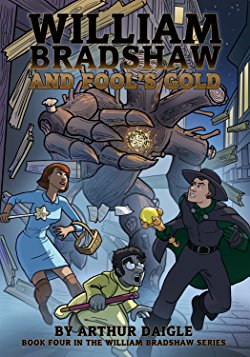
1. When did you begin writing?
I started writing back in high school. I had free time between classes and not much to do (I’m not much of a joiner), and I decided to spend some time writing. It’s addictive. My earlier works will never see the light of day, and that’s for the good of mankind, but it was a steppingstone to the work I do today.
2. What inspires your writing?
Oh where to begin? I draw inspiration from places you’d expect and ones you’d never guess. Books, movies, TV, dreams, back of the box video game descriptions, and sometimes the ideas just kind of show up, no idea where they came from.
3. What do you hope people get from your work?
I want them to laugh so long and so hard that the world looks a bit better when they’re done.
4. I know when I write a book, I always have a particular person in mind as an audience. Who do you write for?
See, that’s not the way I write. I write the kind of books I wish I could find at bookstores and libraries, so I’m basically writing for myself. I’ve since learned that middle school students, adults and seniors enjoy my work.
I started writing back in high school. I had free time between classes and not much to do (I’m not much of a joiner), and I decided to spend some time writing. It’s addictive. My earlier works will never see the light of day, and that’s for the good of mankind, but it was a steppingstone to the work I do today.
2. What inspires your writing?
Oh where to begin? I draw inspiration from places you’d expect and ones you’d never guess. Books, movies, TV, dreams, back of the box video game descriptions, and sometimes the ideas just kind of show up, no idea where they came from.
3. What do you hope people get from your work?
I want them to laugh so long and so hard that the world looks a bit better when they’re done.
4. I know when I write a book, I always have a particular person in mind as an audience. Who do you write for?
See, that’s not the way I write. I write the kind of books I wish I could find at bookstores and libraries, so I’m basically writing for myself. I’ve since learned that middle school students, adults and seniors enjoy my work.
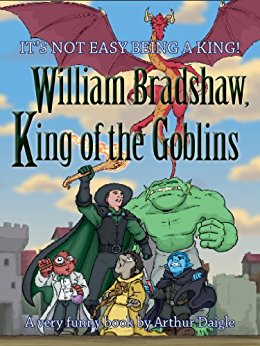
5. Not only are you a writer, but you love the natural world: tell us more about that passion!
I have a degree in biology and am a lifetime gardener. This helps me make fantasy worlds that better follow real world laws. You wouldn’t think that matters, but there comes a point where even lovers of fantasy ask why basic facts of nature are being ignored.
6. I use soundtracks to help keep me on track with books. Do you have any writing rituals to keep you motivated and in the mood?
I take long walks. Besides being good exercise, I find it helps me think. I imagine scenes from my books like short movie clips running in my head. These clips ‘run’ anywhere from a few seconds to five minutes long. Once I have enough of these mental clips, I sew them into a complete book and then begin writing.
7. I love sci-fi and Star Trek, so I have to ask: who’s better, Kirk or Picard? And why?
Kirk. There is an episode in Next generation where Worf’s adopted brother alerts the Enterprise that a world with intelligent aliens is about to suffer a worldwide catastrophe that will wipe out all life. Picard replied that the Prime Directive required him to let the world’s inhabitants die. It was a legalistic response without humanity, and it basically meant that a society not advanced enough to ask for help deserved to die rather than “contaminate” it by helping, as if extinction was a better alternative. The episode really bothered me. Kirk would have said, “Saving innocent people is more important than the rules.”
8. Okay, now the big question: Star Trek or Star Wars?
That’s a hard one because Star Wars has literally decades of TV shows and Star Wars has only the movies. I like both for different reasons. Trek has a wider universe with many sides (Klingon, Romulans, Cardasians and so forth). Wars did a better job of showing what life was like for the average man and the worlds looked more lived in.
9. So, you’ve just written a book: what’s next?
Write more books. Like I said, it’s addictive. I’ve heard of the tortured writer and I just can’t relate to that. When I write I get into a sort of flow where time flies by unnoticed. It’s a good feeling when I make work I’m proud of, and whether my books sell well or not, I’ll always keep writing.
I have a degree in biology and am a lifetime gardener. This helps me make fantasy worlds that better follow real world laws. You wouldn’t think that matters, but there comes a point where even lovers of fantasy ask why basic facts of nature are being ignored.
6. I use soundtracks to help keep me on track with books. Do you have any writing rituals to keep you motivated and in the mood?
I take long walks. Besides being good exercise, I find it helps me think. I imagine scenes from my books like short movie clips running in my head. These clips ‘run’ anywhere from a few seconds to five minutes long. Once I have enough of these mental clips, I sew them into a complete book and then begin writing.
7. I love sci-fi and Star Trek, so I have to ask: who’s better, Kirk or Picard? And why?
Kirk. There is an episode in Next generation where Worf’s adopted brother alerts the Enterprise that a world with intelligent aliens is about to suffer a worldwide catastrophe that will wipe out all life. Picard replied that the Prime Directive required him to let the world’s inhabitants die. It was a legalistic response without humanity, and it basically meant that a society not advanced enough to ask for help deserved to die rather than “contaminate” it by helping, as if extinction was a better alternative. The episode really bothered me. Kirk would have said, “Saving innocent people is more important than the rules.”
8. Okay, now the big question: Star Trek or Star Wars?
That’s a hard one because Star Wars has literally decades of TV shows and Star Wars has only the movies. I like both for different reasons. Trek has a wider universe with many sides (Klingon, Romulans, Cardasians and so forth). Wars did a better job of showing what life was like for the average man and the worlds looked more lived in.
9. So, you’ve just written a book: what’s next?
Write more books. Like I said, it’s addictive. I’ve heard of the tortured writer and I just can’t relate to that. When I write I get into a sort of flow where time flies by unnoticed. It’s a good feeling when I make work I’m proud of, and whether my books sell well or not, I’ll always keep writing.
Be sure to check out all of Arthur's books on AMAZON.COM!
The Blog
Welcome to
My Journal
Categories
All
12 Days Of Giveaways
2016 Election
Author Interviews
Book Review
Bookstores
Book Vs. Movie
Classic Books
Classic Movies
Female Film Maker
Filmmaking
Five Questions For...
#FridayReads
Fun
GOP Candidates
Indie Reviews
John Wayne
Life
Martial Arts
Michael Lawrence
Movies
News!
Novel Excerpts
People
Politics
Promotional
Recommendations
Star Trek
Words Of Wisdom
Writerly
Writers
Writing


